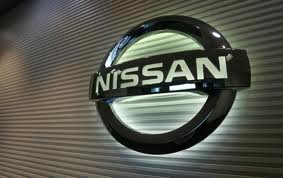Ghosn Pledges to Boost Nissan's Japan Production

Nissan can manufacture profitably in Japan at any exchange rate when the dollar buys more than 100 yen, but it struggles when the dollar is weaker than that, he said.
“Fortunately today, we are way above 100 yen, so we can compete,” Ghosn said today during a question and answer luncheon with the Japan Chamber of Industry and Commerce.
“Our production in Japan is increasing and will be increasing steadily for the next two years,” he said. “Now it makes sense, because the yen has become much more reasonable.”
The dollar buys around 123 yen today, up 22 percent from a year ago. The yen’s slide against the greenback makes Japanese cars more competitive overseas. Japanese automakers have more wiggle room to play with pricing or they can keep prices stable and pack more content into the vehicles to make the more attractive.
A weak yen also boosts the yen-denominated value of overseas earnings when they repatriated back to headquarters, resulting in hefty windfall profits.
Applauds policy
Ghosn applauded the monetary policies of the Bank of Japan and the government of Prime Minister Shinzo Abe for helping undercut the yen’s value after the Japanese currency soared to record highs with the dollar submerged below the 100-yen mark for four years.
“They acted on the currency,” Ghosn said. “What we needed was only a small push from the government through eliminating the obstacle of the yen… And it happened.”
Ghosn’s comments provide fodder to critics in the United States, including lawmakers and executives at Ford Motor Co., who accuse the Japanese government of currency manipulation.
Tokyo denies intentionally massaging exchange rates. Government economists argue that the weakening yen is a side effect, albeit a beneficial one, of government policies that are actually aimed at jump-starting Japan’s moribund economy with extra-loose monetary stimulus.
But Ghosn said such efforts would undoubtedly help exporters like Nissan.
“What we’re seeing today is a much more competitive yen, allowing a lot of major companies to envision exports that before were practically impossible,” he said. “Every time you have an opportunity for additional business, you are going to use the Japanese plant.”
Using excess capacity
Nissan won’t be supplanting overseas production with output from Japan. But the yen makes it easier for Nissan to use excess capacity at home to supplement overseas sales, he said.
Just last week, Nissan said it will begin building up to 100,000 Rogue crossovers a year for the U.S. market at its plant in Kyushu, Japan, starting next year. The Kyushu expansion is on top of the Rogues streaming out of Nissan’s Smyrna, Tenn., factory at a rate of more than 150,000 a year. In addition, as many as 80,000 more are scheduled to come from a Renault factory in South Korea.
In May, Ghosn said Nissan plans to boost Japan production to 1 million vehicles in 2016 from 871,000 in the fiscal year ended March 31, 2015, thanks partly to the additional Rogue volume.
For the year through May, Nissan’s exports from Japan surged 25 percent to 215,933 vehicles, even as its total Japanese output dipped 0.9 percent. The export uptick helped offset sagging domestic demand in Japan, where Nissan’s sales fell 17 percent in the period.
Nouvelles connexes


